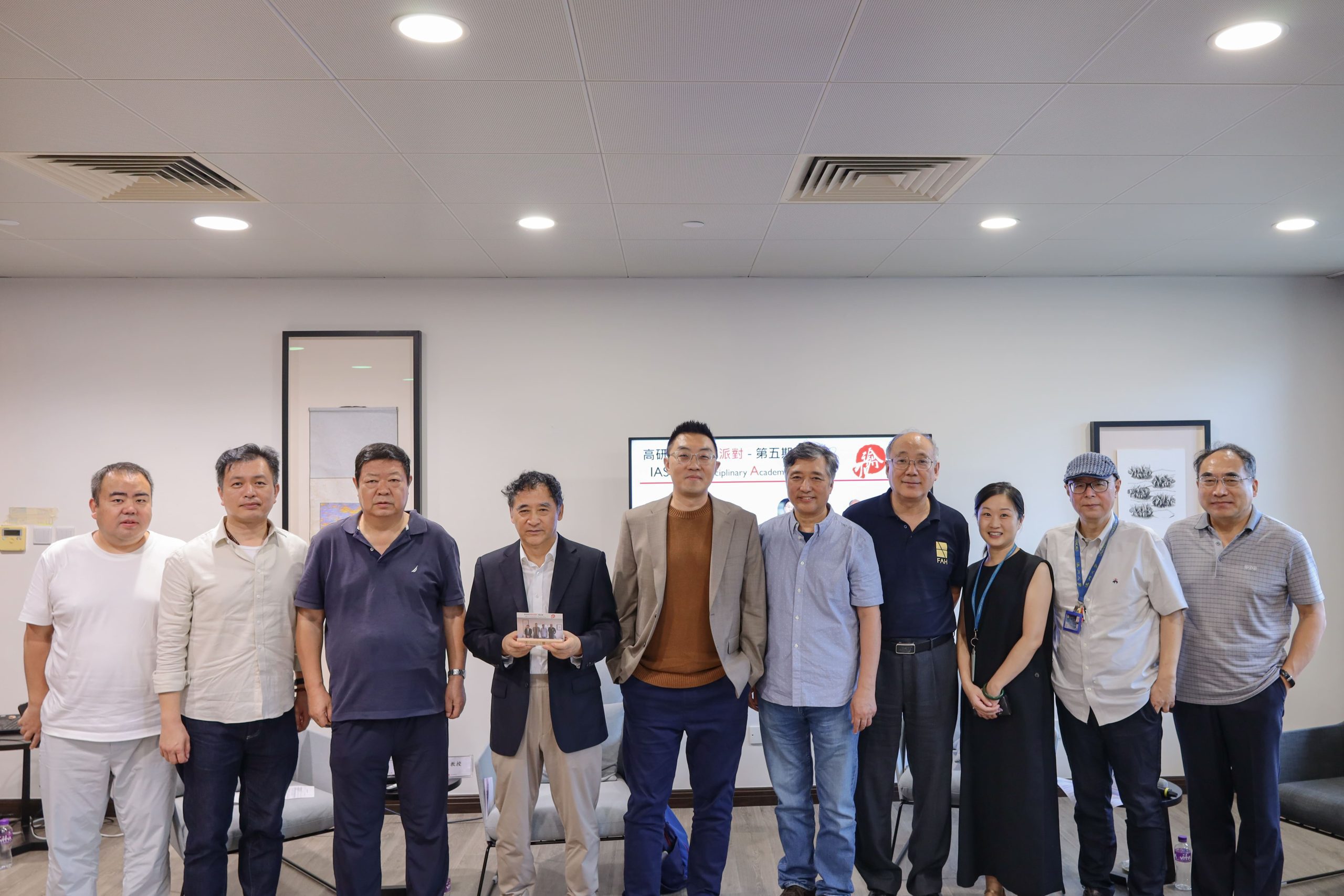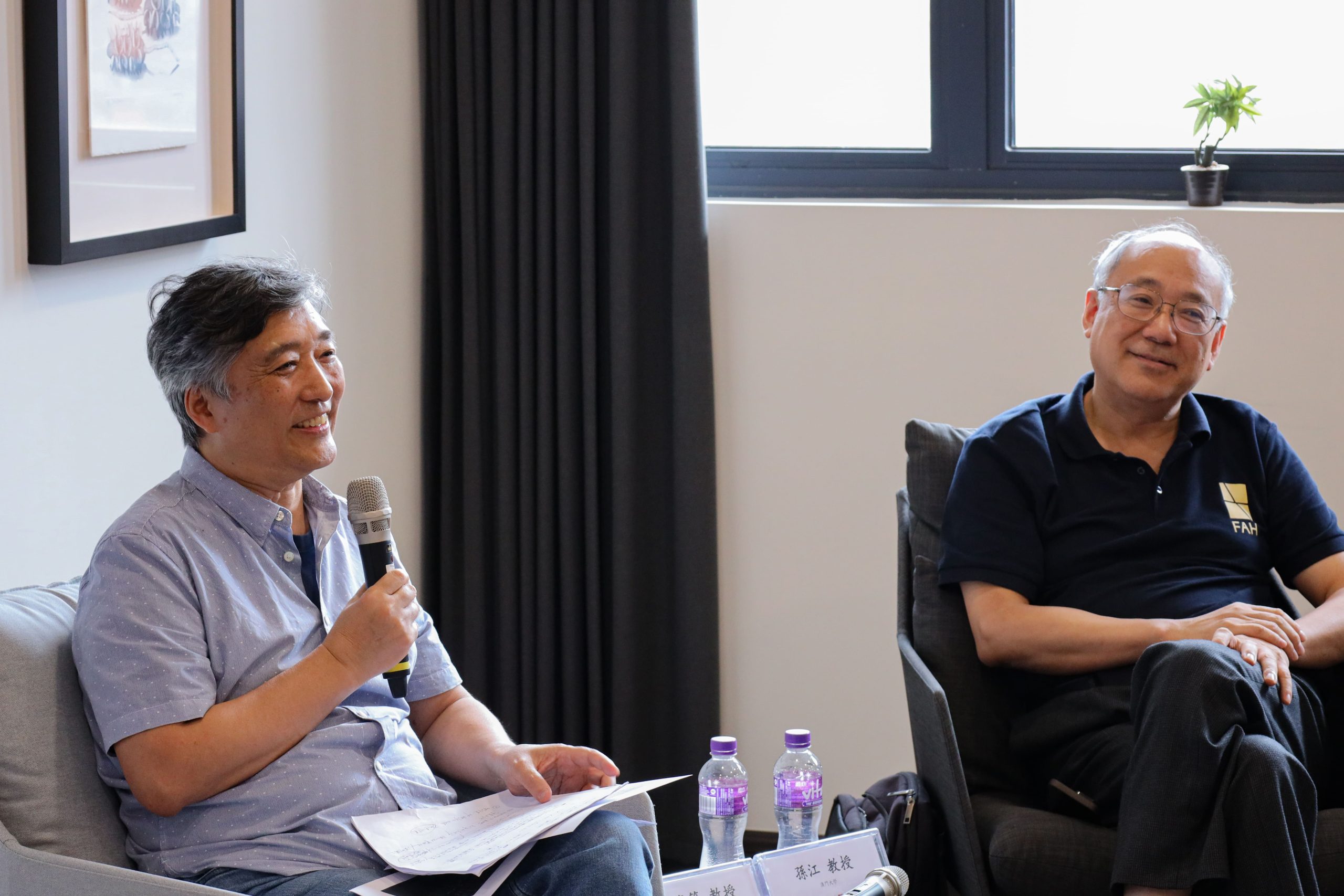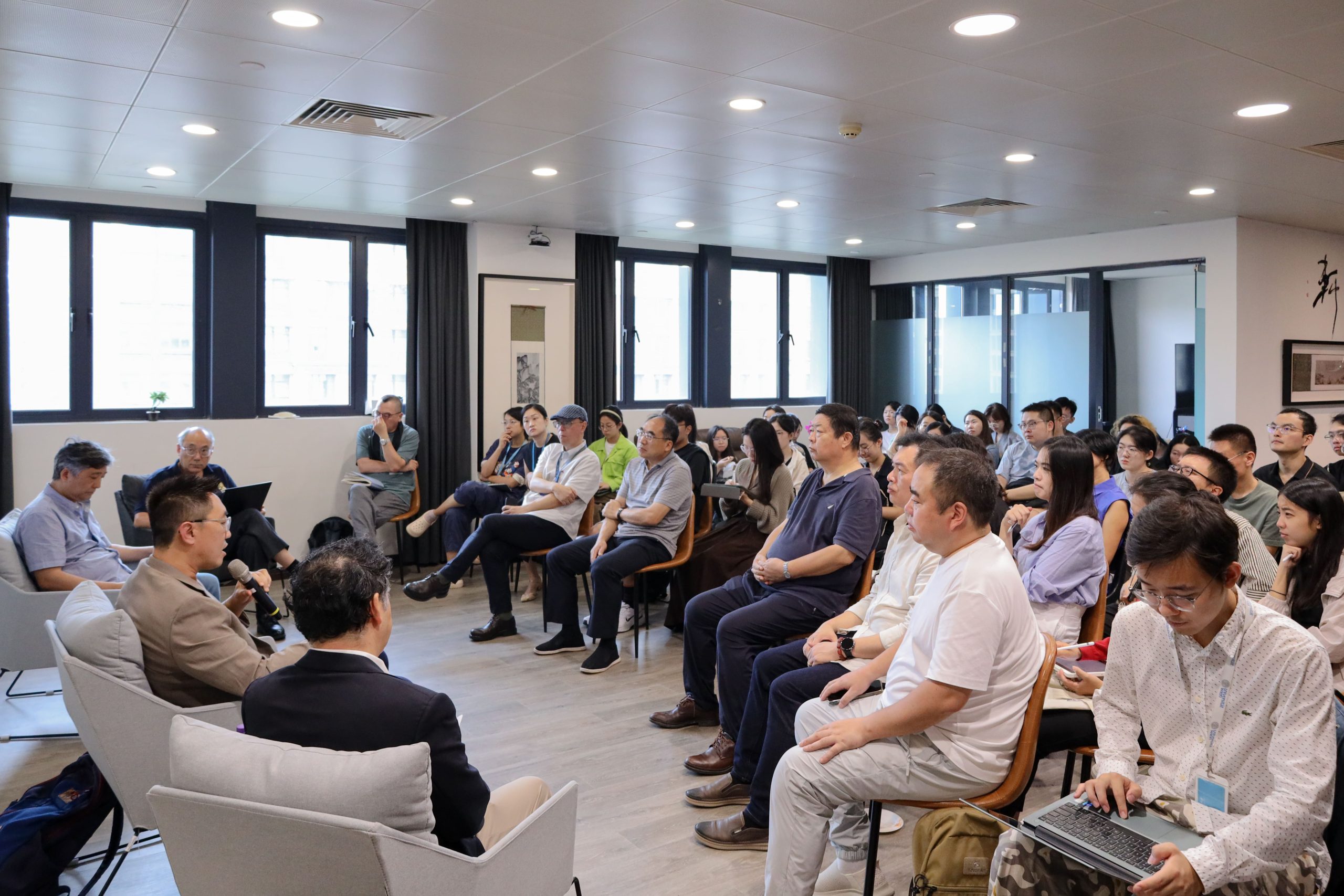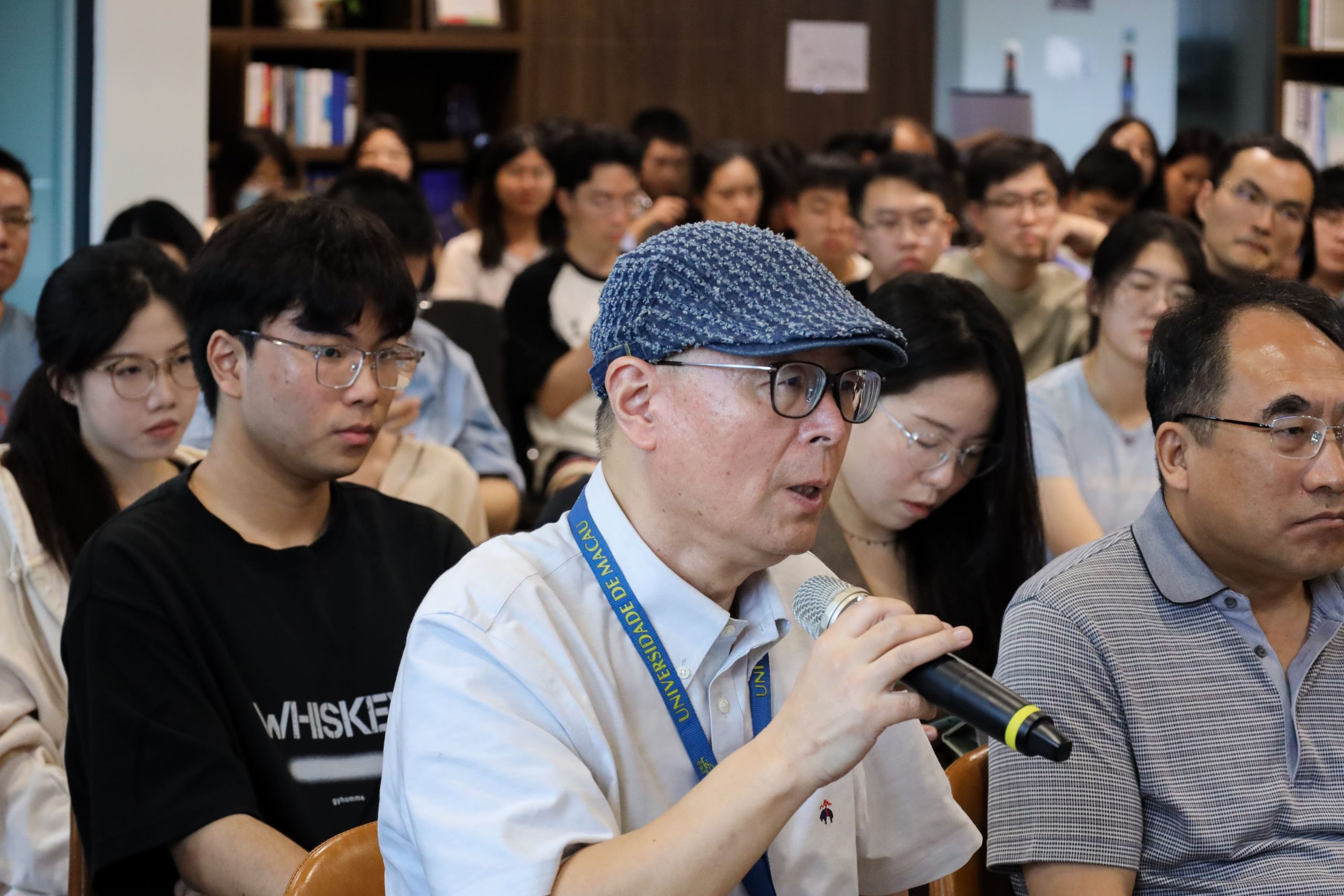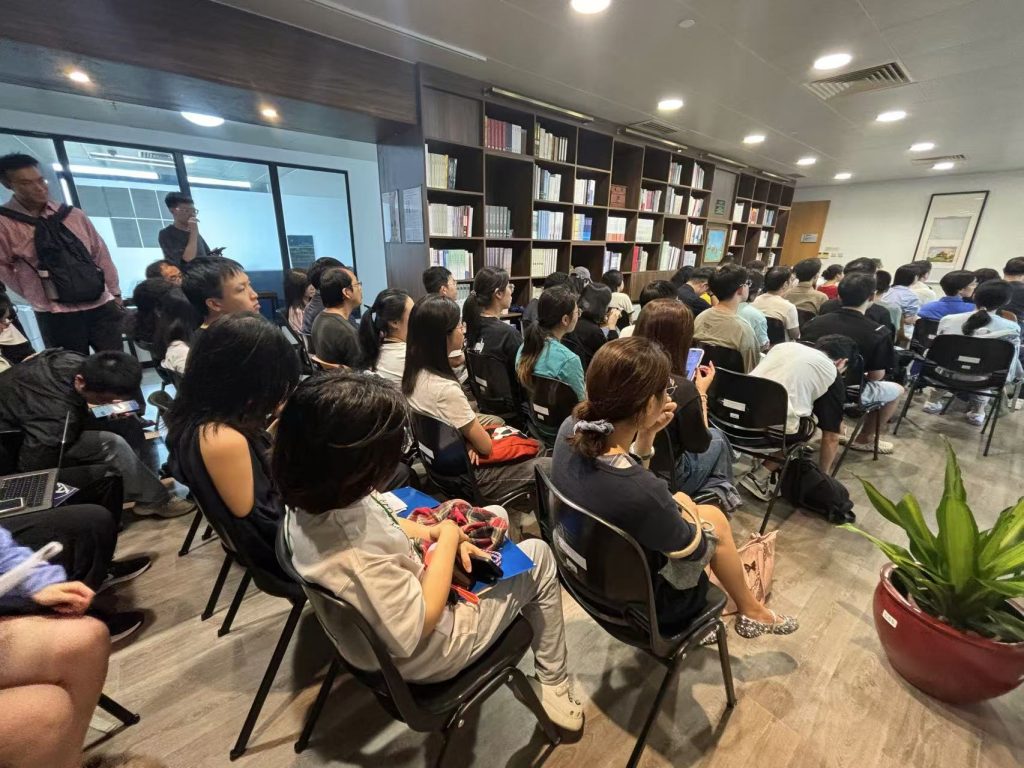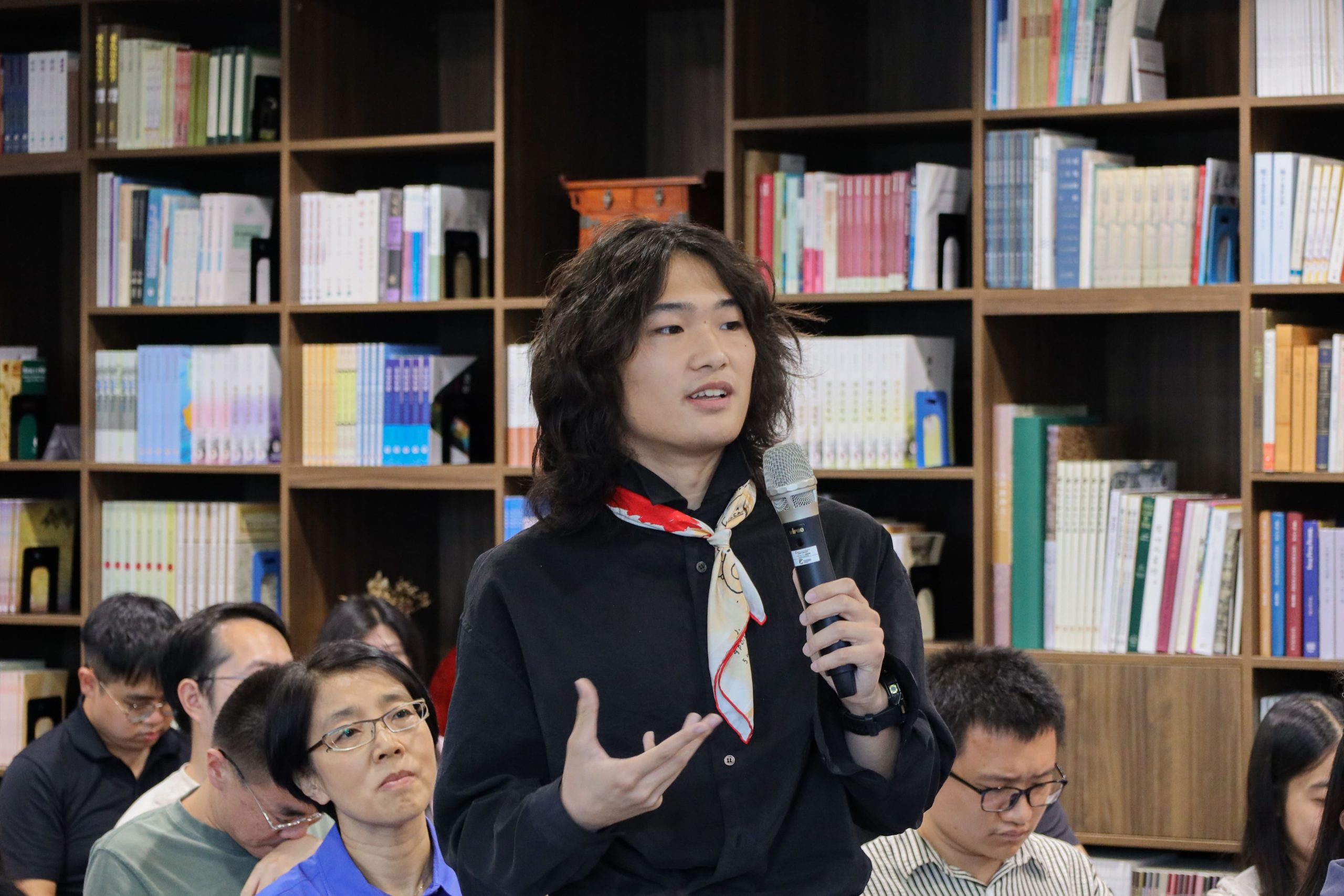【IAS】The IAS x Interdisciplinary Academic Party – 5 was successfully conducted
【高研院】高研院跨學科派對 – 第五期成功舉行

11月13日,人文社科高等研究院(高研院)主辦的「高研院跨學科派對」第五期於崇文樓高士軒成功舉辦。本次活動以「海德格爾和我們的時代:AI技術、歷史觀與時間形態」為主題,邀請了社會科學學院傳播系劉世鼎教授、人文學院哲學與宗教學系特聘教授王慶節教授和人文學院歷史系講座教授孫江教授作為主講嘉賓;並由法學院環球法律學系講座教授兼高研院院長於興中教授擔任主持人。
活動伊始,劉世鼎教授講述了AI技術在當今生活中的主導地位,並指出該議題主要由理工科領域推動,而人文社科則相對弱勢。他認為海德格爾哲學在理解AI技術的本質與影響方面具有深遠價值。他指出技術在現代社會中不僅僅是一種工具,而是對我們日常生活和存在方式的深度塑造。
王慶節教授隨後從「時間形態」的角度,討論了不同時代的時間觀對社會結構的影響,並指出「時間即金錢」的價值觀和「慢生活」的提倡都反映了這一概念的意涵。孫江教授則以歷史角度探討了技術進步帶來的「焦慮」與「不安」,認為這種情緒並非當今獨有,而是每次技術變革的必然產物,強調現代技術割裂了人類過去經驗與未來不確定性之間的緊張關係。
隨後,教授們根據事先徵集的問題,就AI對人類的替代性、如何對待AI以及海德格爾的「詩意地棲居」概念等話題展開了深入討論。劉教授指出,AI將取代部分工作,但也會促使社會分工的重組;王教授認為,「詩意地棲居」代表人類應以藝術性與創造性的方式生活於世界中,而非僅僅追求技術帶來的物質效益。
在最後的討論環節,現場師生積極提問,圍繞AI對歷史學家的影響、技術異化與資本主義控制的關係,以及人類自主性等話題進行了交流。參與者就資本主義如何將人類的勞動轉化為社交平台上的「數據勞動」展開探討,學術交流熱烈而深入,展現了跨學科互動的良好氛圍。
「高研院跨學科派對」系列活動旨在促進校內的學術互動與跨學科交流,鼓勵不同領域的學者共同探索全球性學術課題。本次討論會吸引了近80名來自各學科的師生參加,展示了豐富的學術交流成果,為未來的合作研究奠定了堅實的基礎。
On November 13, the fifth session of the “IAS X Interdisciplinary Academic Party,” organized by the Institute of Advanced Studies in Humanities and Social Sciences (IAS), was successfully held in the Common Room at the IAS in the Cultural Building. The theme of this session was “Heidegger and Our Times: AI Technology, Historical Perspectives, and Temporal Forms.” The event featured Prof. Shih-Diing Liu from the Department of Communication in the Faculty of Social Sciences, Prof. Qingjie Wang, Distinguished Professor from the Department of Philosophy and Religious Studies and Prof. Jiang Sun, Chair Professor from the Department of History in the Faculty of Arts and Humanities as the speakers. Prof. Xingzhong Yu, Chair Professor of the Faculty of Law and Director of IAS, moderated the session.
Prof. Liu began the event by discussing the dominant role of AI technology in contemporary life, noting that this topic has primarily been driven by the sciences and engineering, with relatively less input from the humanities and social sciences. He emphasized the profound value of Heidegger’s philosophy in understanding the nature and impact of AI technology. Prof. Liu argued that technology in modern society is not merely a tool but deeply shapes our daily lives and ways of being.
Prof. Wang then explored the concept of “temporal forms,” discussing how perceptions of time across different eras impact social structures. He highlighted that the value of “time as money” and the advocacy for “slow living” reflect this concept’s implications. Following this, Prof. Sun examined the “anxiety” and “unease” brought about by technological advancements from a historical perspective. He argued that these sentiments are not unique to the present day but are inevitable outcomes of each wave of technological change, emphasizing the tension modern technology creates between humanity’s experiences and future uncertainties.
The professors then engaged in an in-depth discussion based on pre-collected questions concerning AI’s potential to replace human roles, approaches to engaging with AI, and Heidegger’s concept of “poetic dwelling.” Prof. Liu noted that while AI will replace certain jobs, it will also drive a restructuring of the social division of labour. Prof. Wang suggested that “poetic dwelling” represents humanity’s call to live in the world with creativity and artistry, rather than merely pursuing the material benefits brought about by technology.
In the final discussion session, faculty and students actively posed questions, engaging in discussions on AI’s impact on historians, the relationship between technological alienation and capitalist control, and human autonomy. Participants explored how capitalism transforms human labour into “data labour” on social media platforms. The lively and in-depth academic exchange demonstrated a vibrant atmosphere of interdisciplinary interaction.
The IAS Interdisciplinary Academic Party series aims to foster academic interaction and interdisciplinary exchange within the university, encouraging scholars from diverse fields to collaboratively explore global academic issues. This session attracted faculty and students from various academic backgrounds, showcasing a wealth of scholarly exchange and laying a solid foundation for future collaborative research.

